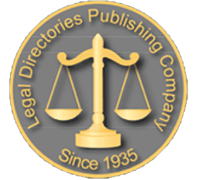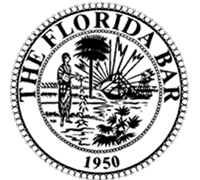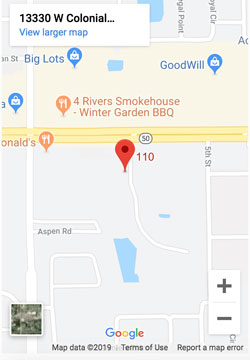7 Foreclosure Defense Strategies to Save Your Home
Your mortgage has likely been bought and sold multiple times, passing through a complex chain of banks and servicers. With so many hands involved, mistakes are surprisingly common. Lenders can misapply payments, charge improper fees, or fail to produce the original paperwork proving they even own your loan. A foreclosure lawsuit assumes the lender has done everything perfectly, but that’s often not the case. A strong foreclosure defense is built on holding the lender accountable for every single step. It’s about scrutinizing their actions and paperwork to ensure they have the legal right to proceed and have followed the law to the letter.
Key Takeaways
- Understand the Process is a Lawsuit, Not an Eviction: Florida’s judicial foreclosure system means your lender must sue you, giving you the legal right and a critical window of time to respond, challenge their claims, and defend your home in court.
- Focus on the Lender’s Burden of Proof: A successful defense often hinges on the lender’s mistakes, not just your payment history. Scrutinize their paperwork for errors, question their legal right to foreclose, and hold them accountable for following every rule.
- Take Immediate, Strategic Action: Ignoring a foreclosure notice is the biggest mistake you can make. Instead, carefully review every document for deadlines, gather your financial records, and consult with an experienced attorney to build a defense and explore all possible alternatives.
What is Foreclosure Defense?
Foreclosure defense is the collection of legal strategies you can use to protect your home when a lender tries to take it. It’s not about finding a single loophole; it’s about carefully reviewing the entire process to ensure your rights are protected. This can mean challenging the lender’s legal right to foreclose, pointing out critical errors in their paperwork, or negotiating for an alternative solution, like a loan modification. The main goal is to give you a fighting chance to find a workable solution and, ideally, stay in your home.
The Florida Foreclosure Process, Explained
Florida is a “judicial foreclosure” state. This might sound intimidating, but it actually works in your favor. It means a lender can’t just seize your property; they must first file a lawsuit and get a court order. This legal requirement creates a formal process that can take several months or even more than a year to complete.
This timeline is crucial. It gives you the opportunity to respond to the lawsuit and build your defense. Understanding the steps of the judicial foreclosure process is the first step in knowing how to counter it. You have the right to be heard in court, and this is your chance to present your side of the story.
How a Strong Defense Protects Your Home and Your Rights
Mounting a strong defense does more than just buy you time—it gives you leverage. By challenging the foreclosure, you can create opportunities to negotiate with the lender for a repayment plan or loan modification. If your defense highlights significant errors the lender made, it could even lead to the case being dismissed.
Every homeowner has rights, and a foreclosure defense is how you assert them. It ensures the lender has followed every state and federal law to the letter. With the help of an experienced real estate attorney, you can hold them accountable and significantly improve your chances of protecting your home and your financial stability.
Know Your Rights During a Foreclosure
Receiving a foreclosure notice can feel like the end of the road, but it’s important to remember that you still have rights. The foreclosure process in Florida isn’t instant; it’s a formal legal proceeding with strict rules that lenders must follow. This means you have specific protections and opportunities to defend your home. Understanding these rights is the first step toward taking control of the situation and finding a path forward.
The law ensures that you are treated fairly and given a chance to respond. Lenders can’t simply change the locks overnight. They are required to provide you with formal notices, adhere to specific timelines, and prove their case in court. This structured process is designed to prevent wrongful foreclosures and give homeowners a fair shot at resolving the issue. Whether it’s through challenging a lender’s mistake or exploring alternatives, knowing your rights gives you a foundation to build your defense. Our team of real estate attorneys can help you understand every protection available to you under Florida law and guide you through the complexities of the legal system. It’s about making sure the bank plays by the rules and that your side of the story is heard.
What Notices Lenders Are Required to Send
Before a lender can sell your home, they must provide you with specific legal notices. First, you’ll typically receive a notice of default, which informs you that you’re behind on payments and gives you a chance to catch up. If the issue isn’t resolved, the lender will file a lawsuit and you will be served with a summons and complaint. This officially begins the judicial foreclosure process. Later, if the court rules in the lender’s favor, you must receive a notice of the sale date for your property. These notices are not just formalities; they are legal requirements. A lender’s failure to provide proper notice can be a valid defense in court.
Your Right to Contest the Foreclosure
You have the right to challenge the foreclosure in court. Simply being behind on payments doesn’t mean the lender automatically wins. To contest the action, you must file a formal written answer to the lawsuit. In your answer, you can present defenses explaining why the foreclosure should not proceed. There are several common defenses to foreclosure, including showing that the lender can’t prove it owns your loan, made significant errors in managing your account, or failed to follow the proper legal procedures. You can also challenge the foreclosure if the lender used predatory lending practices when you first got the mortgage.
Florida’s Timeline Protections for Homeowners
Florida law provides a critical buffer period for homeowners. Under federal law, a lender generally cannot start the foreclosure process until you are more than 120 days delinquent on your mortgage payments. This 120-day period is designed to give you time to apply for loss mitigation options, such as a loan modification or a repayment plan, without the immediate threat of a lawsuit. This protection ensures you have a meaningful opportunity to work with your lender to find a solution and potentially avoid foreclosure altogether. It’s a crucial window of time to assess your situation and seek legal guidance.
Explore Effective Foreclosure Defense Strategies
Receiving a foreclosure notice can feel like the final word, but it’s actually the start of a legal process. In Florida, the lender who wants to foreclose on your home has the burden of proof. This means they must follow a strict set of legal procedures and prove to the court that they have the right to take your property. If they fail to meet these requirements at any stage, it can create an opportunity for a strong defense.
Many homeowners don’t realize they have grounds to challenge a foreclosure. The law provides several avenues to protect your rights, from questioning the lender’s paperwork to exposing unfair practices that happened when you first got the loan. A successful defense can result in the case being dismissed, giving you more time to find a solution or even allowing you to keep your home. Understanding these strategies is the first step toward taking control of the situation. It’s not about finding a loophole; it’s about holding the lender accountable and ensuring your rights under the law are fully protected.
Challenge Improper Procedures and Documentation
Florida law sets out very specific rules for how a foreclosure must be handled. Lenders and their attorneys must follow every single step correctly, from sending the right notices at the right time to filing the lawsuit properly. If they make a mistake, it can invalidate their case. For example, they might fail to provide you with a required notice of default or not serve you with the lawsuit papers correctly. These aren’t just minor technicalities; they are violations of your rights. An experienced foreclosure defense attorney can scrutinize the entire process to find procedural errors that can be used to challenge the foreclosure.
Question the Lender’s Right to Foreclose
The company suing you must prove it has the legal right, or “standing,” to foreclose. Over the years, your mortgage may have been sold and transferred between multiple banks and investors. This can create a confusing and sometimes broken chain of ownership. You have the right to demand that the foreclosing party produce the original promissory note to prove they are the true owner. If they can’t produce the note or if there are gaps or errors in the assignments transferring the mortgage, their case could be dismissed. This forces the lender to prove they haven’t made any errors in your loan papers and have the authority to proceed.
Expose Predatory Lending Practices
Sometimes, the grounds for a foreclosure defense can be traced all the way back to the day you signed the loan. Predatory lending involves unfair, deceptive, or fraudulent practices by the original lender. This could include charging excessive fees, hiding unfavorable terms in the fine print, or pressuring you into a loan you couldn’t afford. If you were a victim of predatory lending, you may be able to challenge the validity of the mortgage itself. Proving these claims can be complex, but it is a powerful defense that addresses the fundamental fairness of the loan and can sometimes stop a foreclosure in its tracks.
Identify Mortgage Servicing Errors
Your mortgage servicer is the company that collects your monthly payments. Unfortunately, these companies often make mistakes. They might misapply your payments, charge improper late fees, or fail to credit your account in a timely manner. In some cases, these servicing errors are the very reason a homeowner falls behind in the first place. You can defend against a foreclosure by demonstrating that the servicer made significant mistakes in managing your account. This requires a careful review of your payment history and all communications with the servicer to identify discrepancies that can be used to challenge the amount the lender claims you owe.
How to Challenge Foreclosure Documentation
When you receive a foreclosure notice, it can feel like the lender holds all the cards. But the truth is, the mountain of paperwork involved in a mortgage is a major opportunity for your defense. Lenders and servicers must follow strict legal procedures, and any misstep can be grounds to challenge the foreclosure. Scrutinizing every document for errors isn’t just about stalling; it’s about ensuring your rights are protected and holding the lender accountable. A single mistake in the paperwork could be the key to keeping your home.
Review the Lender’s Required Paperwork
The first step is to demand that the lender produce all the essential documents. This includes the original promissory note you signed, the mortgage agreement, and any assignments that transferred the loan from one bank to another. The entity trying to foreclose must prove it has the legal right, or “standing,” to do so. If they can’t produce the original note or show a clear paper trail proving they own your loan, their case could fall apart. An experienced real estate attorney can help you formally request this documentation and analyze it for any weaknesses that could support your case.
Find Common Errors That Can Invalidate a Foreclosure
Mistakes in mortgage documents and foreclosure proceedings are surprisingly common. You have the right to fight the foreclosure if the lender or servicer made a serious error. Carefully review your account history and all correspondence for mistakes like misapplied payments, incorrect fees, or an inaccurate loan balance. Lenders are also required to follow specific state and federal laws, including sending you proper notices before initiating a foreclosure. A failure to follow these rules can be a powerful defense against foreclosure. Don’t assume their records are perfect; a detailed review often uncovers errors that can be used in your favor.
Uncover Chain of Title and Assignment Problems
Your mortgage has likely been sold and transferred between different banks over the years. Each transfer must be legally documented through a process called “assignment.” The complete history of these transfers is known as the “chain of title.” If there is a gap or a mistake in this chain—for example, a missing assignment or a forged signature—the current lender may not have the legal standing to foreclose. Investigating the chain of title is a complex process that often requires a trained eye. Our experienced attorneys know exactly what to look for and can identify breaks in the chain that can invalidate the lender’s claim to your property.
Use Procedural Defenses to Stop a Foreclosure
When you’re facing foreclosure, it’s easy to feel like the case is only about the money owed. But the law requires lenders to follow a very specific set of rules to foreclose on a property in Florida. Procedural defenses focus on how the lender is foreclosing rather than why. If the bank or loan servicer fails to follow these rules to the letter, it can create a powerful defense for you.
Think of it as a checklist the lender must complete perfectly. Did they send the right notices at the right time? Did they file the lawsuit correctly? Did they properly deliver the legal documents to you? Any misstep can be grounds to challenge the foreclosure. These defenses don’t necessarily erase the debt, but they can delay the process, give you more time to find a solution, or even lead to a dismissal of the case. An experienced real estate attorney can scrutinize every step the lender has taken to find these critical errors. It’s worth fighting if the lender clearly broke the law, made big mistakes, or didn’t follow required state or federal procedures.
Challenge an Improper Service of Process
Before a lender can proceed with a foreclosure lawsuit, they must formally notify you that you are being sued. This is called “service of process.” To fight a judicial foreclosure, the lender starts by filing a lawsuit and sending you papers, specifically a “summons and complaint.” Florida law has strict rules about how these documents must be delivered. If they are left with the wrong person, delivered to the wrong address, or if the server doesn’t make a genuine effort to find you, the service may be improper. If you weren’t properly served, the court doesn’t have jurisdiction over you, and the entire case could be dismissed.
Identify Missing Notices or Timeline Violations
Both federal and Florida laws require lenders to send homeowners specific notices before and during the foreclosure process. For example, federal law typically requires the servicer to contact you by the 36th day of a missed payment and send a written notice by the 45th day. Lenders must also send a “breach letter” that informs you of the default and gives you a chance to cure it. Homeowners can challenge a foreclosure if the loan servicer or bank didn’t follow state or federal laws for foreclosures. If any of these required notices were missing, inaccurate, or sent too late, it could be a valid defense.
Point Out Failures to Follow Florida Statutes
Florida is a judicial foreclosure state, which means the lender must go through the court system to foreclose. This process is governed by a detailed set of Florida Statutes that dictate every step, from the content of the complaint to the final sale of the property. For example, the lender must prove they have the legal right, or “standing,” to foreclose when they file the lawsuit. If they fail to attach the correct documents or follow any other state-specific rule, you can challenge the foreclosure. A skilled attorney who handles real estate litigation can identify these failures and use them to protect your rights.
How to Fight a Foreclosure in Court
When a lender files a foreclosure lawsuit, it can feel like the final word. But in Florida, this is actually your first opportunity to formally defend your home. Because Florida is a judicial foreclosure state, the lender must take you to court to foreclose, which means you have the right to respond and present your side of the story. This is where you can raise defenses, challenge the lender’s claims, and hold them accountable for any mistakes or misconduct. This process isn’t just about delaying the inevitable; it’s about ensuring your rights as a homeowner are fully protected under the law.
Ignoring a foreclosure summons is one of the most significant mistakes you can make. If you don’t respond within the legal timeframe, the court can issue a default judgment against you. This allows the lender to proceed with the sale of your home without ever hearing your defense. Taking action by fighting the foreclosure in court can, at the very least, buy you more time to explore other options like a loan modification or a short sale. In the best-case scenario, a strong legal defense can stop the foreclosure altogether. The court process involves strict deadlines and complex procedures, so working with an experienced real estate attorney is the most effective way to protect your rights and build a solid case.
File Your Answer and Affirmative Defenses
After you’re served with a foreclosure complaint, your first step is to file a formal written response with the court, known as an “Answer.” In Florida, you typically have only 20 days to do this. Your Answer is your chance to respond to each allegation the lender made in their complaint. As legal resource Nolo explains, “If you don’t file an answer, the court will likely rule against you without hearing your side.” Along with your Answer, you’ll raise any “affirmative defenses.” These are specific legal arguments explaining why the lender shouldn’t be allowed to foreclose, even if you’ve fallen behind on payments. For example, you might argue that the lender made accounting errors or violated state law. Filing a detailed Answer is critical for preserving your rights.
Gather Evidence Through Discovery
Once you’ve filed your Answer, the case enters the discovery phase. This is the formal process where you and the lender exchange information and evidence. Through legal tools like interrogatories (written questions), requests for documents, and depositions (sworn testimony), you can obtain crucial information from the lender. This might include your complete loan payment history, all communications about your loan, and documents proving who currently owns your mortgage. Discovery is your opportunity to find the proof you need to support your affirmative defenses. For instance, you might uncover that the mortgage servicer misapplied your payments or charged improper fees. This evidence is essential because if the case proceeds, “both sides present their evidence and witnesses, and the judge makes a decision.”
Present Your Case Effectively
After discovery, your attorney will use the evidence to argue your case, either in a motion for summary judgment or at trial. A motion for summary judgment asks the judge to rule in your favor without a full trial, based on the facts and evidence presented. If the case goes to trial, your attorney will present your evidence, question the lender’s witnesses, and make legal arguments to the judge. Presenting a strong case can lead to several positive outcomes. It’s especially “worth fighting if the lender clearly broke the law, made big mistakes… or didn’t follow required state or federal procedures,” as this can give you leverage to negotiate a better solution. A successful defense could result in the foreclosure being dismissed or creating an opportunity to secure a loan modification.
Consider These Alternatives to Foreclosure
Facing a foreclosure lawsuit doesn’t always mean the fight has to happen in a courtroom. Sometimes, the best strategy involves working with your lender or exploring other legal avenues to find a resolution. These alternatives can help you avoid the long-term consequences of a foreclosure judgment, giving you a chance to either keep your home or move on with less damage to your financial health. Exploring these options with a real estate attorney can help you understand which path makes the most sense for your situation.
Loan Modifications and Repayment Plans
Before things escalate, it’s often worth reaching out to your lender directly. One of the most common solutions is a loan modification, where your lender agrees to change the original terms of your mortgage. This could mean lowering your interest rate, extending the loan term to reduce your monthly payment, or even forgiving a portion of the principal balance. If you’ve fallen behind but can resume payments, a repayment plan is another option. This allows you to catch up on missed payments over an extended period while staying current on your regular mortgage bill.
Short Sales and a Deed in Lieu of Foreclosure
If keeping your home isn’t a viable option, you can still avoid a formal foreclosure. A short sale allows you to sell your property for less than the total amount you owe on the mortgage, as long as your lender approves the sale. This can be a good choice if the real estate market has declined. Another alternative is a Deed in Lieu of Foreclosure. With this arrangement, you voluntarily transfer the property’s title back to the lender. In exchange, the lender agrees to release you from your mortgage obligation. Both options are typically less damaging to your credit score than a completed foreclosure.
Bankruptcy as a Foreclosure Defense
Filing for bankruptcy is a significant step, but it can be an incredibly effective tool for stopping a foreclosure in its tracks. When you file for Chapter 13 bankruptcy, the court issues an “automatic stay,” which immediately halts all collection activities, including a pending foreclosure sale. This gives you valuable time to reorganize your finances. Under a Chapter 13 plan, you can catch up on your past-due mortgage payments over three to five years while continuing to make your current payments. This legal protection provides the breathing room needed to get back on your feet and save your home.
What to Do After Receiving a Foreclosure Notice
Receiving a foreclosure notice can feel overwhelming, but it’s a signal to take action, not to give up. The steps you take immediately after can significantly impact your ability to keep your home. The key is to act quickly and strategically. Instead of letting panic set in, focus on these clear, manageable steps to understand your situation and start building your defense. This is your opportunity to get organized and explore every available option.
Review the Notice Details and Deadlines
The first thing you should do is read the foreclosure notice from top to bottom. I know it’s tempting to set it aside, but this document contains critical information. Look for key details like the name of the lender, the amount they claim you owe, and the law firm handling the foreclosure. Most importantly, find the deadlines. Florida law has specific timelines, and missing a deadline to respond can seriously limit your options. Even when you’re facing foreclosure, you have rights. Lenders are required to send you proper notices, and understanding the details in these documents is the first step in protecting your real estate law rights.
Contact Your Lender to Discuss Options
Before the legal process goes too far, reach out to your lender or mortgage servicer. This isn’t an admission of defeat; it’s a proactive step to see what solutions might be on the table. You can ask your lender to change your loan terms through a loan modification, which could result in lower payments or a reduced interest rate. Other possibilities include a forbearance or a repayment plan to help you catch up. When you call, be prepared to explain your financial situation. Take detailed notes of every conversation: who you spoke with, the date, and what was discussed. This record can be valuable later on.
Gather Your Financial and Mortgage Documents
Now is the time to get organized. Pull together every document related to your mortgage and your finances. This includes your original loan agreement, your monthly mortgage statements, records of your payments, and any letters or emails you’ve received from your lender. Check all these documents carefully. Look closely at the papers from your mortgage servicer, especially the amounts they say you owe. Mistakes can happen, and you don’t want to pay more than you should. Having all your paperwork in one place makes it easier to spot errors and prepares you to discuss your case with an attorney.
Avoid These Common Foreclosure Misconceptions
When you’re facing foreclosure, it’s easy to get overwhelmed by stress and misinformation. Believing common myths can make you feel powerless, but the truth is you have options. It’s crucial to separate fact from fiction so you can understand your position and make informed decisions. Let’s clear up a few of the biggest misconceptions that can prevent homeowners from effectively defending their rights and their homes. Knowing the truth is the first step toward building a strong defense strategy and taking back a sense of control.
Myth: “I have no rights once foreclosure begins.”
It’s a common fear: the moment a foreclosure notice arrives, you’ve lost all control. The reality is quite different. In Florida, the law provides homeowners with specific rights throughout the entire foreclosure process. Lenders can’t just show up and change the locks; they are required to follow strict legal procedures. This includes sending you proper notices at specific times, giving you a formal heads-up before your home can be sold. Understanding these homeowner protections is a critical part of protecting your home and ensuring your lender is held accountable every step of the way. You have the right to respond to the lawsuit, present a defense, and explore alternatives.
Myth: “Foreclosure can’t be stopped or delayed.”
Feeling like foreclosure is an unstoppable train coming your way is completely understandable, but it’s not the case. The process is not set in stone, and a strong defense can create the time and leverage you need to find a better solution. It can open the door to negotiating a repayment plan or a loan modification with your lender. In some situations, identifying critical errors made by the lender can even lead to the entire foreclosure case being dismissed. An experienced real estate attorney can help you identify these opportunities and fight to keep you in your home by challenging procedural mistakes or raising valid defenses in court.
Myth: “I can’t contest if I’m behind on payments.”
Many homeowners assume that because they fell behind on payments, they have no grounds to fight back. This is one of the most damaging myths out there. A foreclosure lawsuit isn’t just about whether you owe money; it’s about whether the lender has the legal right to foreclose and has followed the law perfectly. You can absolutely challenge a foreclosure if your loan servicer or bank made serious mistakes. This could include misapplying your payments, charging improper fees, or failing to provide accurate loan statements. Your payment history is only one part of the story; the lender’s actions are just as important and are subject to legal scrutiny.
When to Hire a Foreclosure Defense Attorney
Deciding to fight a foreclosure can feel overwhelming, and it’s natural to wonder if you can handle it alone. While it might seem like a way to save money, going without legal representation often creates more problems than it solves. The legal system is intricate, and lenders have teams of lawyers on their side. Having a professional in your corner levels the playing field and gives you the best chance at a positive outcome. If you’re facing foreclosure, here are a few key signs that it’s time to bring in an attorney.
Your Case Involves Complex Legal Issues
Fighting a foreclosure is a complicated process. It’s highly recommended to hire a lawyer who can explain your options and guide you through the legal process. Florida’s real estate laws have specific requirements for lenders, and identifying whether your lender has followed them requires a trained eye. An attorney can review every document for errors, question the lender’s right to foreclose, and build a defense strategy based on the unique details of your case. They translate the dense legal jargon and procedures into clear, actionable steps, so you always understand what’s happening and what your choices are.
You Need to Meet Deadlines and Follow Court Rules
The foreclosure process is driven by strict deadlines and procedural rules. If you want to fight a judicial foreclosure, you must file a formal answer with the court. Failing to do so means you automatically lose your right to defend yourself in court. Missing a deadline or filing paperwork incorrectly can get your case dismissed, regardless of how strong your defense is. A foreclosure defense attorney manages this entire process for you. They ensure every document is filed correctly and on time, protecting your right to be heard and preventing simple administrative errors from costing you your home.
You Want an Experienced Advocate on Your Side
Facing foreclosure is incredibly stressful. An attorney does more than just handle the legal work; they act as your advocate and guide. A skilled foreclosure defense lawyer helps you understand your rights, finds possible defenses, and can negotiate with your lender to find a solution that works for you. They take on the burden of communicating with the lender and their lawyers, shielding you from the pressure and intimidation tactics that can sometimes occur. Having one of our experienced attorneys on your side provides peace of mind, knowing a professional is fighting to protect your interests every step of the way.
Related Articles
- Florida Foreclosure Defense Lawyer: Top 5 Tips in 2024
- Why Hire Foreclosure Attorneys? 5 Key Reasons
- Residential Foreclosure Defense – Legal Counsel P.A.
Frequently Asked Questions
I’m behind on my mortgage. Is it too late to do anything? Absolutely not. Falling behind on payments is what triggers a foreclosure, but it is far from the end of the story. The legal process in Florida is designed to give you time and opportunities to respond. Whether it’s through challenging the lender’s case or negotiating an alternative solution, you have options at every stage. The most important thing is to take action now instead of assuming it’s a lost cause.
What’s the first thing I should do after getting a foreclosure notice? Before you do anything else, read the entire notice carefully to find the deadline for your response—in Florida, it’s often just 20 days. Then, start gathering every document related to your home loan, including the original mortgage, your payment history, and all correspondence from the lender. Getting organized is the critical first step that prepares you for a productive conversation with an attorney.
Will fighting the foreclosure completely destroy my credit? Your credit score is likely already impacted by the missed payments that led to the foreclosure notice. A final foreclosure judgment on your record will cause further, long-term damage. However, successfully defending against the foreclosure or arranging an alternative like a loan modification or short sale is often much less harmful to your credit. The goal is to control the outcome and put yourself in a better position to rebuild your financial health.
Can I just negotiate with my lender on my own? You can always contact your lender to discuss your situation, and sometimes this can be a productive step. Keep in mind, though, that your lender has a team of professionals focused on their financial interests. Working with an attorney levels the playing field. They understand your legal leverage and can often negotiate more favorable terms because they can identify weaknesses in the lender’s case that you might not see.
If my defense is successful, does that mean my mortgage is gone? A successful defense typically means the court dismisses the lender’s current lawsuit, often due to a significant error on their part. This stops the immediate threat of losing your home, but it doesn’t erase the underlying debt. The lender may be able to fix their mistake and file a new foreclosure case later. The real value of winning is that it gives you powerful leverage and valuable time to negotiate a more permanent solution from a position of strength.

















